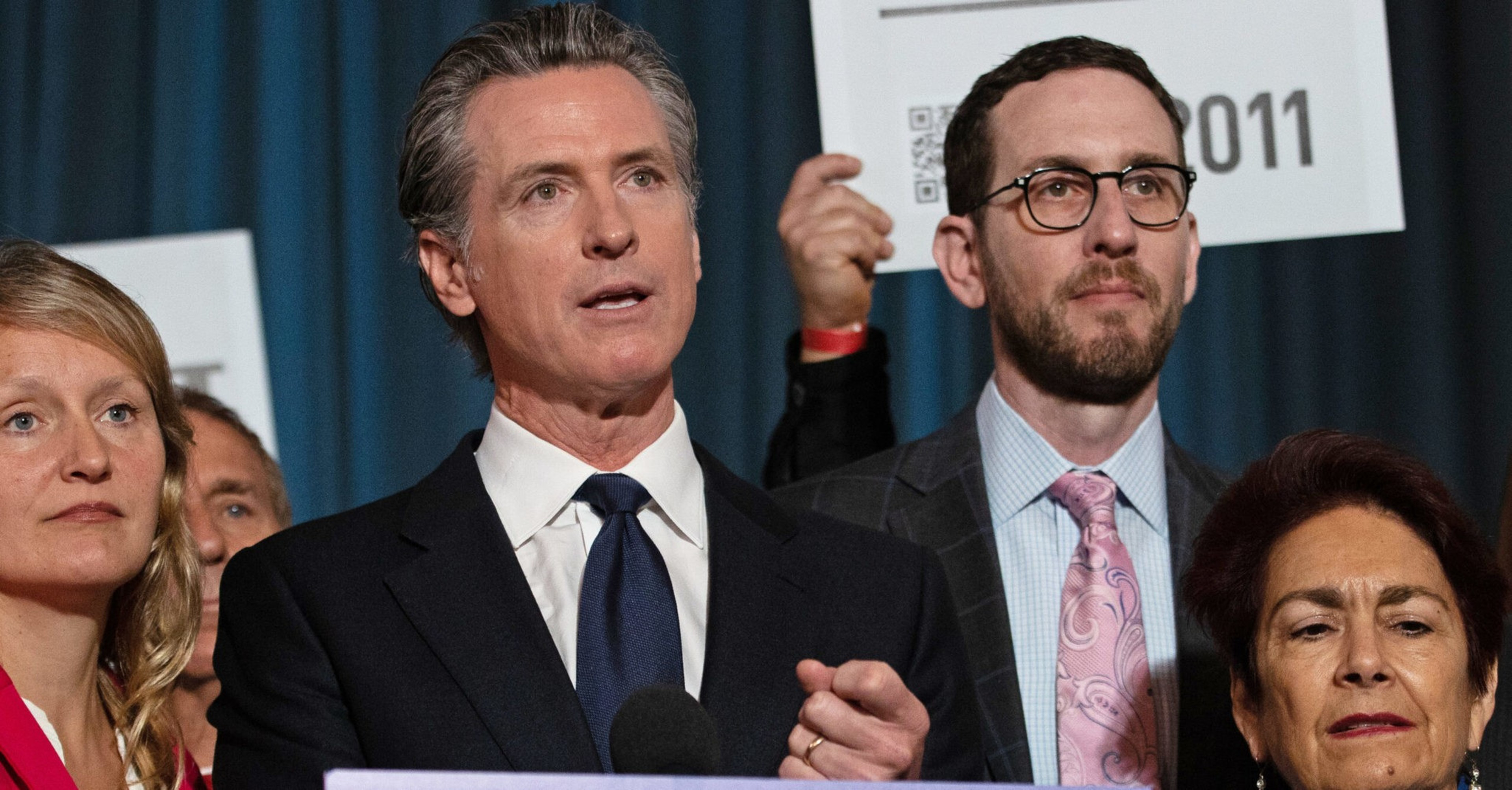San Francisco officials are uneasy about Gov. Gavin Newsom’s $297 billion budget proposal, which includes cuts that could endanger transit projects. Local legislators say they’re prepared to fight the cuts if necessary.
Newsom’s budget includes $5.7 billion in direct cuts and also delays funding for capital projects, including transit improvement and climate resilience programs. Transportation Secretary Toks Omishakin later told reporters that the state will ask the federal government to help local transit agencies facing fiscal cliffs, but that “local governments and transit agencies need to think about how they can fill the gap as well.”
The San Francisco Municipal Transit Agency has run into more fiscal bad luck than expected. Last June, Proposition A, a $400 million bond measure for transit infrastructure, failed to pass by less than one percentage point.
That disappointment adds to a serious structural deficit—the agency projected a $76 million deficit by 2025—and an evisceration of ridership during the pandemic, from which the agency is still recovering.
“If we care about supporting San Francisco’s economic recovery, we’ve got to make sure our transit agencies stay solvent,” Gwyneth Borden, SFMTA board chair told The Standard. “That’s the message we’ll be taking into our conversations with the Legislature and the administration as they move from this draft budget toward a final one.”
Muni and BART have been able to use federal emergency funding to stave off fiscal chasms until 2025. Caltrain, on the other hand, has only until this summer before hard decisions about service need to be made.
“Our transit systems are approaching a severe fiscal cliff when the federal emergency aid runs out,” state Sen. Scott Wiener told The Standard.
Wiener said that he understands Newsom’s dilemma—the state is facing an enormous $22 billion deficit tied to rocky markets and uncertain economic prospects. But sidelining transit will do more harm than good, he said, and legislators in both houses are prepared to push back.
“We need to step in and provide gap funding to save these systems from going into a financial death spiral,” he said. “Public transportation is not a luxury, it’s not optional, it’s an essential part of our climate future and, if we allow these systems to fall apart, we’re in for a world of hurt.”
Supervisor Rafael Mandelman, who also chairs the San Francisco County Transportation Authority, says that cutting transit project funding not only delays projects, but also makes it harder to complete them down the line due to missed opportunities.
“It’s concerning because these are multiyear projects, where we’re seeking multiyear funding commitments and as there are fewer of those funds available. […] It drags those projects out longer, which makes them more expensive,” Mandelman said, noting this was a critical year for obtaining federal matching funds for the Downtown Caltrain Extension.
State legislative committees will review and make initial decisions on Newsom’s proposed budget between February and early May.
Newsom will release a May revision to the budget by May 14, and the Assembly and the Senate will produce their own revised versions by June, when all differences will have to be ironed out.
